On the morning of October 28, 1776, George Washington lined up his troops to face a superior British army at White Plains, New York. It was a brilliant autumn day, and the legions of enemy soldiers were coming to kill his beleaguered volunteers. Addressing his officers, Washington said, “Gentlemen, you will repair to your respective posts, and do the best you can.”
His statement is a reminder that the citizen of the three-month-old nation faced enormous uncertainty. No one knew if or how they could defeat one of the premier military powers in the world. They simply had to do their best.
What has always interested me in the Revolutionary era is the newness of the venture on which Americans were embarking, the freshness of their thinking, the spirit that shot through the ranks of patriots. The newness and the danger. The thrill of taking a chance.
I have tried in my writing to convey this sense of sheer excitement in the midst of hardship and brutality. During the past year, my book God Save Benedict Arnold has found a ready audience among readers. I’ve taken great pleasure in sharing my enthusiasm for a story about one of the most valiant and most flawed characters of the era.
Here are the final paragraphs of the book:
“We are a young Nation and have a character to establish,” George Washington wrote to his brother in 1783 as he waited impatiently for the treaty that would formally end the Revolutionary War. “It behooves us therefore to set out right for first impressions will be lasting.”
To guide the infant nation, citizens looked to the exemplary figures of the era. Washington himself became the central icon of the nation’s founding. His image was immortalized, his conduct and demeanor held up as a model for his own and future generations. Other warriors and statesmen—Alexander Hamilton, Benjamin Franklin, Thomas Jefferson—entered the pantheon as examples of integrity and devotion to the public good. Over the years, myths turned them into idols. Their virtue was said to exclude all that was mean or dishonorable.
Villains too could serve as moral signposts. Just as Washington’s image was inflated to extraordinary proportion, so Benedict Arnold was made out to be a treacherous character without peer, his virtues not just overshadowed but erased entirely. His extraordinary betrayal became his central, and for many his only, attribute.
“We were all astonishment, each peeping at his next neighbor to see if any treason was hanging about him,” Alexander Scammell declared in the aftermath of Arnold’s failed plot. “We even descended to a critical examination of ourselves. This surprise soon settled down into a fixed detestation and abhorrence of Arnold.”
The denigration of Arnold served a purpose. If patriots examined their own conscience and perceived a lack of public virtue, they could rest assured that at least they were more principled than the country’s arch-traitor. And since genuine patriotism and social conscience are more or less lacking in every era, Arnold’s reputation became a permanent, reassuring object lesson for citizens down the years.
We are no longer a young nation. We now see more clearly the cracks in our icons. Our champions enslaved human beings, tolerated political chicanery, conspired with enemies, and put personal profit above public benefit. We have come to understand that they were, after all, only human.
After Arnold went over to the enemy, Eleazer Oswald, his early and faithful comrade in war, said, “Happy for him, and for his friends, it had been, had the ball which pierced his leg at Saratoga, been directed thro’ his heart.” Historians have echoed the sentiment down the years—if Arnold had died at Saratoga he would have gone to his grave an American hero.
Oswald’s suggestion brings to mind another “if only” possibility. As a boy, Arnold had accompanied his father on sea voyages. It’s easy to imagine that these were among his happiest moments—what boy would not exult in such watery adventures? Later, he went to sea himself in war and peace, and still later he took his own son with him on trading voyages.
A command at sea would have been ideal for the incorrigible general. He loved to operate independently, yearned for battle, and coveted a share in the valuable prizes that came from preying on the enemy’s merchant fleet. Such an assignment would have cancelled his idleness, taken him away from the dusty complications of administering a static post, and removed him from his feuds with Congress and with his legion of antagonists. It might have saved him from his final treason, might have returned him to the adventurous environs of his childhood and to the cause he once cherished.
The prospect of him going to sea offers a vision of Arnold bounding over green waves in sunlight, facing down tempests, and losing himself in the thrilling, unpredictable action that was his forte. And when he returned—perhaps sailing into the harbor at New Haven after a long voyage—his wife and children would have awaited him at the wharf, his fellow citizens would have turned out to cheer, and someone might have shouted: “God save Benedict Arnold!”
Next year we will begin the celebration known as Rev 250, the quarter-millennium anniversary of our independence. Be prepared by picking up one or all of my Revolutionary War books. Just click an image below. GREAT GIFT!
GOD SAVE BENEDICT ARNOLD “A deeply researched, insightful page-turner.” -Booklist
VALCOUR “A boon for fans of Revolutionary-era military history.” -Kirkus Review
BAND OF GIANTS “Mr. Kelly packs in a remarkable amount of information, thanks to his lean, readable prose and a smoothly integrated structure.” -The Wall Street Journal




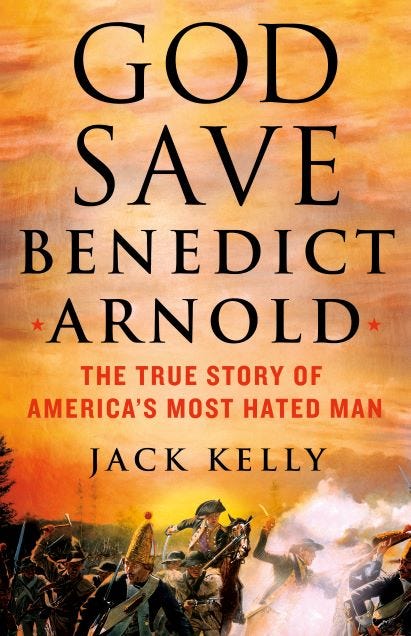

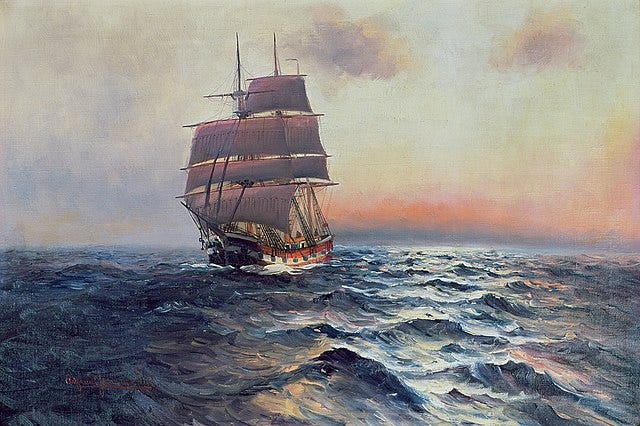
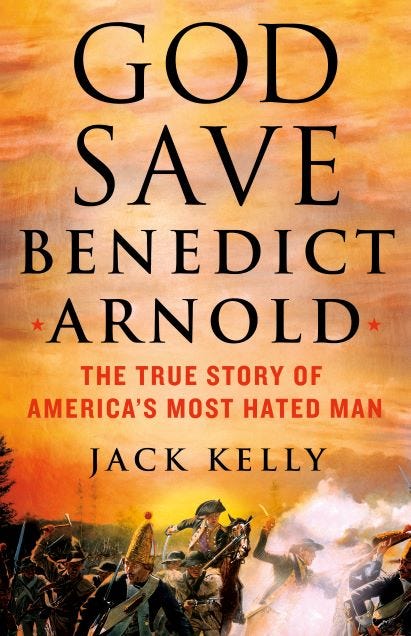
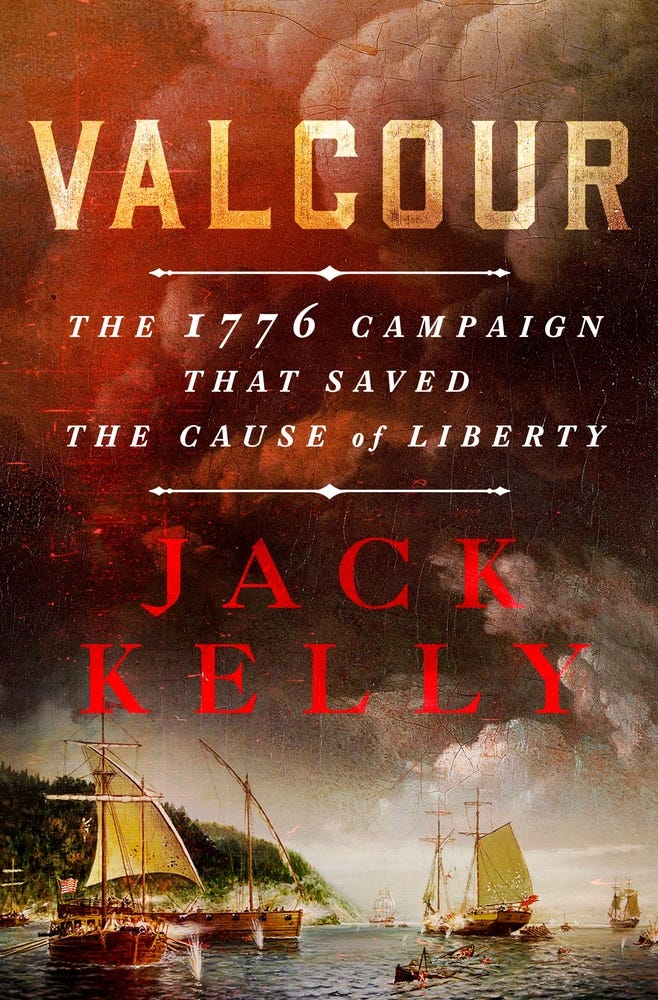
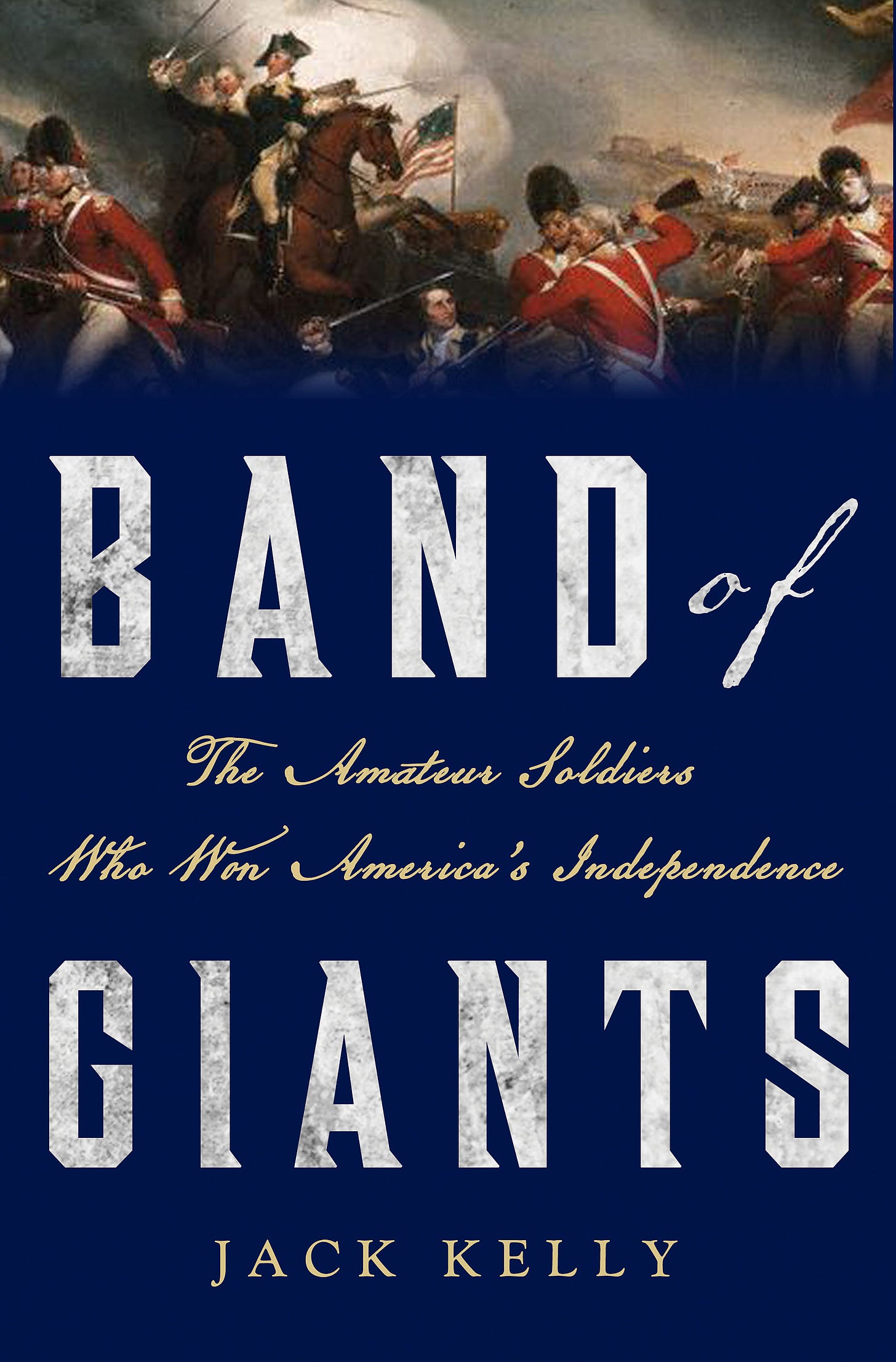
God save Rev 250, independence is no longer a given. Great piece Jack, your writing is terrific.
Morning Jack. Another very good read from Talking to America. I enjoyed your book God Save Benedict Arnold. A lot of "ifs' were stated for his life but I do believe that his path was just how it was supposed to be. I still think the man was a hero and sad that others didn't see that.